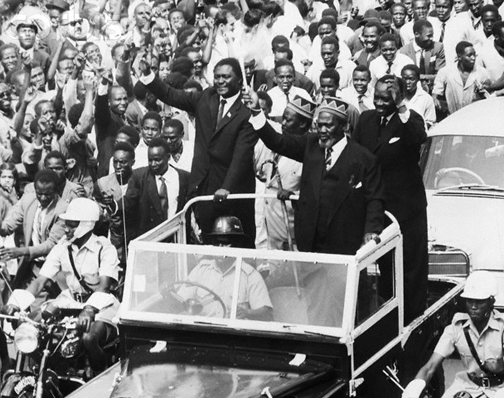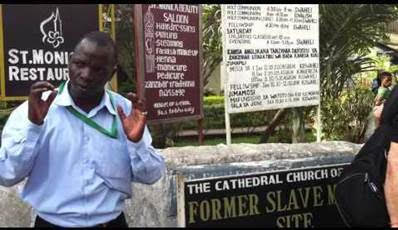Minneapolis, MN- During a “Human Rights Defenders Speaking Tour” Amnesty International highlighted ongoing human rights’ violations in Somalia. Zamzam
Abdullahi, a young Somali activist accompanied them..
Abdullahi left Somalia in July following threats on her life because of her work as human rights activist.
“Consistently, I have been receiving threatening calls from
blocked numbers instructing me to drop my work or be killed,”
Abdullahi said.
Abukar
Albadri, a prominent Somali photojournalist and human rights activist
who was supposed to accompany Abdullahi and Lynn Fredriksson of Amnesty International to this tour, was denied entry to the U.S. citing
possible grounds for asylum. In an email response, Albadri told Mshale,“When I was forced to flee Mogadishu they [the LA Times] asked me
to write [an] article about myself. It was talking about the situation of
journalists after they fled their home, but the US counselor
[consulate] officers said because of this article
we can’t give you a VISA, because if you go to US automatically you
will qualify protection and we can’t force you to go back.”
Somalia
lost control when in 1989 a number of tribes took up arms against
General Mohamed Siad Barre’s government. Barre responded with arbitrary
arrests, torture and at times executions of tribesmen associated with
the rebels. The New
York Times
in 1989 reported that, “A report commissioned by the State Department
says the Somali Army ‘purposely murdered’ at least 5,000 unarmed
civilians.” A few years later, in 1991, Barre’s government was
overthrown. Subsequently, Somalia went into a brutal civil war that has
continued. As a result, over
the last three decades, Somalis have been subject to human rights
violations.
In
the recent past, Amnesty International has released three reports
detailing some of these atrocities. In December
2006 Ethiopia invaded Somalia resulting in the displacement of millions
of Somalis. Thousands more have been killed, while the whereabouts of
hundred others are unknown. The Ethiopian government and Somalia’s
Transitional Federal Government (TFG) have been accused of arresting
hundreds of Somali citizens without due process.
On the other hand, Somali insurgencies
battling the Ethiopian/TFG troops have been accused of making
assassination attempts on government officials. Amnesty International
concludes that all parties of the conflict have violated international
human rights laws. The U.S.
Department
agrees that “human rights abuses included unlawful and
politically motivated killings; kidnapping, torture, rape, and
beatings; official impunity; harsh and life-threatening prison
conditions; and arbitrary arrest and detention.”
Despite
these recognized violations and a UN arms
embargo against Somalia neither the Ethiopian government nor the TFG has held itself accountable. This
is in part because the U.S. government is supporting the occupation. USA
Today reports that “The
United States has quietly poured weapons and military advisers into
Ethiopia, whose recent invasion of Somalia opened a new front in the
Bush administration’s war on terrorism.”
Fredriksson makes a similar charge,“ [The] TFG and government of Ethiopia currently face little consistent
international pressure to ensure that their armed forces cease
committing human rights violations and violations of international
humanitarian law… Just in the last 48 hours, 15
innocent civilians have been killed.”
Fredriksson further stated that “At least 40 Somali human
rights defenders and humanitarian workers were killed between January
and September 2008 alone.”
Attending
Somalis seemed encouraged by Amnesty’s interest and approach to
inform both the Somali Diaspora and the international community.
Zainab Hassan, a human rights advocate based in Minneapolis,
acknowledged that “there needs to be some sort of
accountability. Recording human right abuses and informing
the Somalis in the Diaspora and the international community is a
positive step toward the right direction … I am gratified by
Amnesty International’s effort”
“Now
that Amnesty is involved vigorously, I am convinced that there is
going to be international protest as a result,” Abdullahi Abdi, another Somali attendee, said.
For
the most part, Somalis and humanitarian organization do not speak publicly about crimes committed against civilians for fear of
reprisal. “Function leader continue to carry out their illegal
work, intimidating, abducting, killing and looting, while
representing the public in the parliament or the government,”
Abdullahi stressed.
According to the Amnesty’s latest report, “humanitarian organizations have in large measure
yielded to this pressure in order to preserve their operational
presence on the ground.” Consequently, not even a fraction of
all violations is reported.
Amnesty international
and other human rights organizations continue to campaign to the
international community to treat the Somali crisis urgently.
Fredriksson told Mshale that about half a dozen organizations including Amnesty International and Human Rights Watch were at
the UN Security Council in November to urge the council to “confront the Somali crisis as interlinked human rights and
humanitarian crisis.”
Consequently, on November 20, 2008,
the UN Security Council passed resolution
1844
which stipulates travel restrictions and an asset freeze that would be
applied to individuals and entities that have engaged in activities
that threaten the peace and the political processes and obstruct
humanitarian assistance in Somalia.
“Because
of Abukar and Abdullahi’s hard work in the face of immense danger,
the international community now realized the gravity of the situation
in Somalia,” Zainab said.
About Mohamed Hassan
Mr Hassan is a recipient of the 2006 Hennepin County Government Management, Administration and Policy (MAP) Fellowship and the 2007-2008 Hubert H. Humphrey Policy Fellowship. He has a B.S. from Metropolitan State University and M.A. from Saint Mary's University of Minnesota.
- Web |
- More Posts(9)







